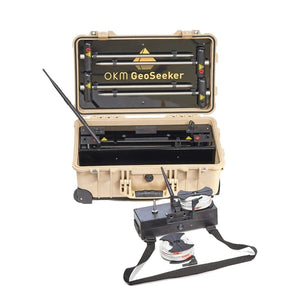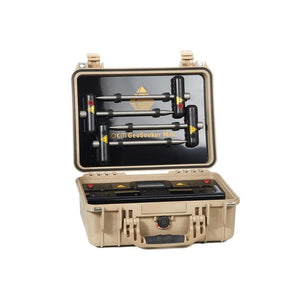HOW TO METAL DETECT A BEACH
Metal detecting is a fun and rewarding hobby that can be enjoyed by people of all ages. It can be a great way to get exercise, enjoy the outdoors, and learn about history. Beach metal detecting is a particularly popular activity, as beaches are often home to a variety of interesting objects, including coins, jewelry, and artifacts.
If you're interested in trying beach metal detecting, here are a few tips to get you started:
- Choose the right metal detector. Not all metal detectors are created equal. When you go to buy metal detectors, opt for one for beach use and you can also get some metal detecting accessories. Also look for a model that is waterproof and has a ground balance feature. Ground balance is important because it helps to filter out unwanted signals from the beach sand.
- Get the proper permits. Some beaches require permits for metal detecting. Check with the local authorities to find out if a permit is required and how to obtain one.
- Dress appropriately. Beach metal detecting can be a hot and sweaty activity. Wear comfortable clothing that will allow you to move freely. You may also want to wear sunscreen and a hat to protect yourself from the sun.
- Start at low tide. The best time to metal detect on the beach is at low tide. This is because the water will have washed away some of the sand, exposing objects that may be buried deeper at high tide.
- Sweep the beach in a grid pattern. The best way to search the beach is to sweep the metal detector in a grid pattern. This will help you to cover more ground and avoid missing any objects.
- Pay attention to the signal. When the metal detector gives a signal, stop and investigate. The signal will tell you the type of metal that is buried.
- Dig carefully. Once you have located an object, carefully dig it up. Be careful not to damage the object.
- Clean and identify your finds. Once you have dug up your finds, clean them with a brush and water. Then, identify what you have found. You can use a reference book or online resources to help you identify your finds.
- Report any important finds. If you find any important finds, such as coins or jewelry, report them to the local authorities. They may be able to return the finds to their rightful owners.
Beach metal detecting can be a fun and rewarding hobby. By following these tips, you can increase your chances of finding interesting objects and having a great time.
Here are a few additional tips for beach metal detecting:
- Look for areas that have been recently disturbed, such as after a storm or a large wave. These areas are more likely to contain newly buried objects.
- Look for areas that are known to be popular with tourists or beachgoers. These areas are more likely to contain lost or discarded objects.
- Be aware of the tides and currents. Metal detecting at low tide will give you the best chance of finding objects. However, be sure to check the tides before you start detecting so that you don't get caught out by the rising water.
- Be respectful of the beach and its wildlife. Avoid digging in areas where there are plants or animals.
- Have fun! Metal detecting is a great way to get outdoors and explore your surroundings.





Leave a comment